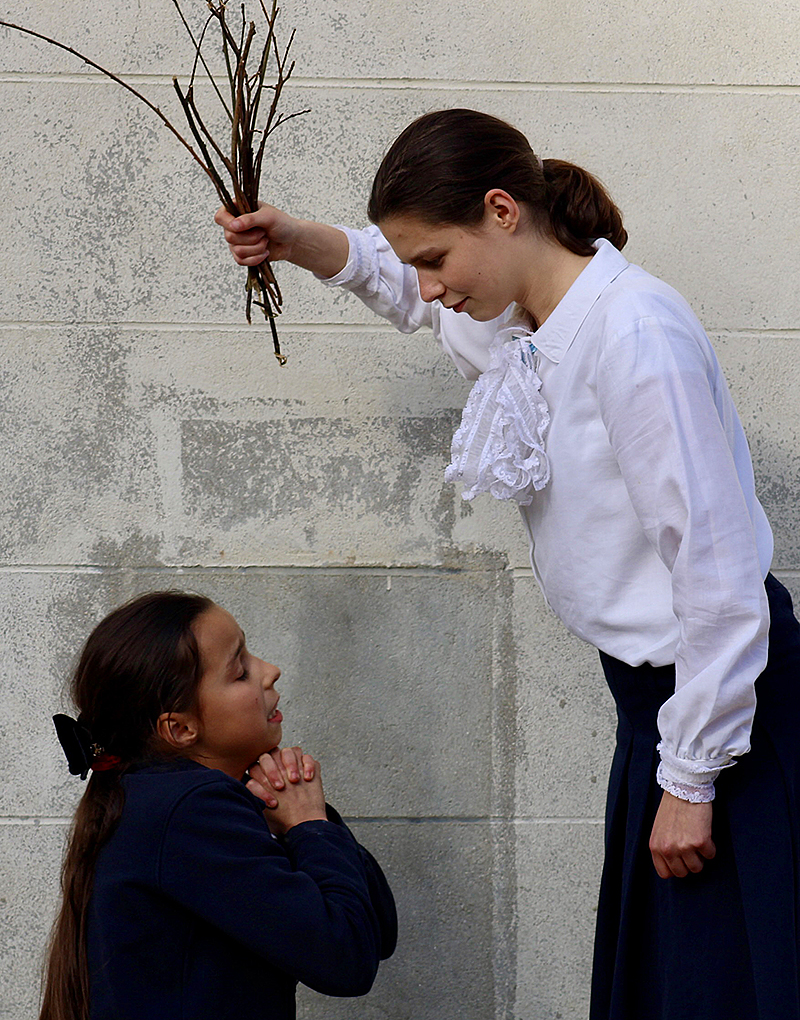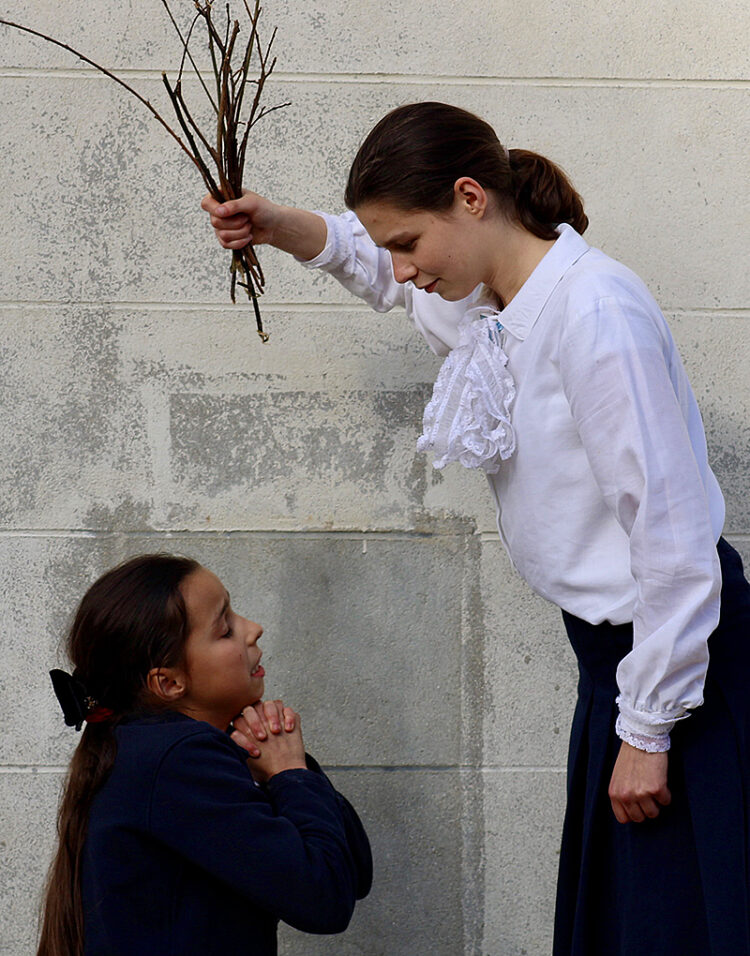(Ephesians 5:8)
Parents, leaders, and educators, we have a mission, a duty to lead children's souls toward the Light which will be their guide and their happiness. In order to illuminate the way that lies before each one of us, once a week we invite you to discover some of the words of certain wisemen and witnesses, measuring their worth by the words of St. Thomas Aquinas: “Do not consider the one who speaks, but whatever good you hear from him, confide it to your memory.” (from The Sixteen Ways to Acquire the Treasure of Knowledge by St. Thomas). Happy reading!

CREON:
Tell me, tell me briefly: had you heard my proclamation touching this matter?
ANTIGONE:
It was public. Could I help hearing it?
CREON:
And you dared to defy my law?
ANTIGONE:
Yes, for it was not Zeus who made this proclamation, nor was it Justice who lives with the gods below that established such laws among men, nor did I think your proclamations strong enough to have power to overrule, mortal as they were, the unwritten and unfailing ordinances of the gods. For these have life, not simply today and yesterday, but for ever, and no one knows how long ago they were revealed. For this I did not intend to pay the penalty among the gods for fear of any man’s pride. I knew that I would die, of course I knew, even if you had made no proclamation… It is in no way painful for me to meet with this death; if I had endured that the son of my own mother should die and remain unburied, that would have given me pain, but this gives me none. And if you think my actions foolish, that amounts to a charge of folly by a fool!
Sophocles (495-406 BC)
Playwright
“ANTIGONE: O tomb, my bridal-bed — my house, my prison cut in the hollow rock, my everlasting watch! I’ll soon be there, soon embrace my own, the great growing family of our dead Persephone has received among her ghosts. I, the last of them all, the most reviled by far, go down before my destined time’s run out. But still I go, cherishing one good hope: my arrival may be dear to father, dear to you, my mother, dear to you, my loving brother, Eteocles — When you died I washed you with my hands, I dressed you all, I poured the sacred cups across your tombs. But now, Polynices, because I laid your body out as well, this, this is my reward. Nevertheless I honored you — the decent will admit it — well and wisely too. Never, I tell you. If I had been the mother of children or if my husband died, exposed and rotting — I’d never have taken this ordeal upon myself, never defied our people’s will. What law, you ask, do I satisfy with what I say? A husband dead, there might have been another. A child by another too, if I had lost the first. But mother and father both lost in the halls of Death, no brother could ever spring to light again. For this law alone I held you first in honor. For this, Creon, the king, judges me a criminal guilty of dreadful outrage, my dear brother! And now he leads me off, a captive in his hands, with no part in the bridal-song, the bridal-bed, denied all joy of marriage, raising children — deserted so by loved ones, struck by fate, I descend alive to the caverns of the dead. What law of the mighty gods have I transgressed? Why look to the heavens any more, tormented as I am? Whom to call, what comrades now? Just think, my reverence only brands me for irreverence! Very well: if this is the pleasure of the gods, once I suffer I will know that I was wrong. But if these men are wrong, let them suffer nothing worse than they mete out to me — these masters of injustice!… I was born not to hate, but to love.”
Sophocles (495-406 BC)
Playwright
In the same category « Teaching », also read :

